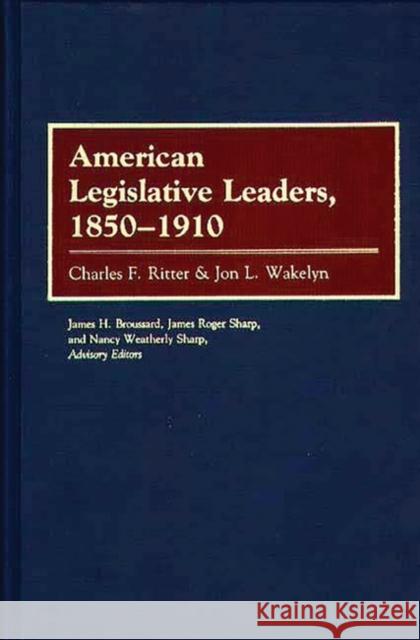American Legislative Leaders, 1850-1910 » książka
American Legislative Leaders, 1850-1910
ISBN-13: 9780313239434 / Angielski / Twarda / 1989 / 1156 str.
It was a time of civil war and economic shift from an agrarian to an industrial society for the 1,390 speakers of state houses of representatives profiled in this unique biographical dictionary. The political climate and characteristics of the politicians as a group are surveyed in introductory material. This is followed by biographical entries which include a list of sources. The cumulated bibliography, arranged by state, is valuable. . . . There is no other such directory.
"Library Journal"
On the whole it is a useful compilation, providing a starting point for research into the lives of a cross-section of legislators in this period. . . . A necessary purchase for research libraries; recommended to all academic libraries with strong collections in state history. "Choice"
During the years 1850-1910, the United States evolved from an agrarian to an industrial political economy. By the end of the century, industrialization has shifted the entire political system toward national government power, beginning a trend that continues today.
An understanding of the importance of state government and, in particular, of the lower houses of the legislatures at this time is crucial to an understanding of how American politics was transformed in the second half of the nineteenth century. This study compares the speakers of these influential nineteenth-century American political bodies and focuses on the legislative issues of the period. The largest collection of biographical data of its kind to date, the book profiles the 1,390 speakers in the period from 1850 to 1910. The collective career analysis of the individuals covered provides an unprecedented exploration of the socioeconomic issues, the governmental processes, and the political behavior of the times to allow a more thorough understanding of the transition from an agrarian to an industrial state. This comprehensive study of state political power will provide fresh insight into the American legislative system of the latter half of the nineteenth century and will be of special value to scholars of American political history and political science.











